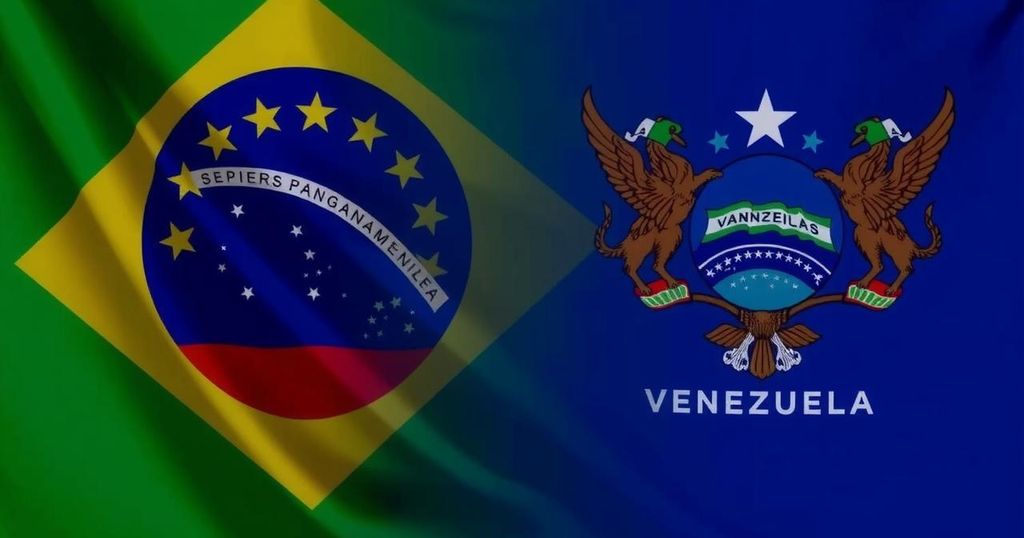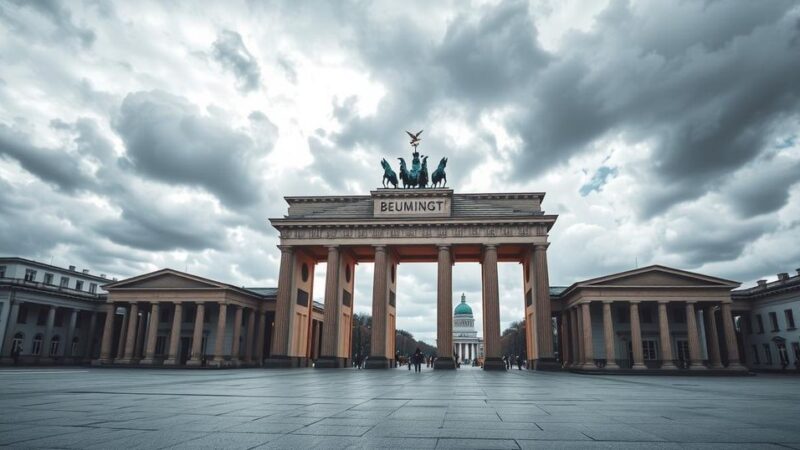The Venezuelan government has recalled its ambassador from Brazil in response to perceived interventionist comments from Brazilian officials, particularly targeting Celso Amorim. This diplomatic dispute follows Venezuela’s controversial presidential elections and Brazil’s recent veto of Venezuela’s BRICS admission, indicating rising tensions between the two nations.
The Venezuelan government announced on Wednesday its decision to recall its ambassador from Brazil, citing what it referred to as “repeated interventionist and rude statements” originating from Brasilia. Additionally, the Venezuelan administration has summoned Brazil’s business envoy for discussions. The foreign ministry of Venezuela specifically targeted Celso Amorim, the chief foreign policy advisor to Brazilian President Luiz Inacio Lula da Silva, accusing him of acting as a facilitator for U.S. imperialist interests and of intruding into matters concerning Venezuelan democracy. Amid these developments, Jorge Rodriguez, the head of Venezuela’s parliament, suggested that lawmakers consider declaring Amorim a persona non grata, alleging that he acted on behalf of U.S. National Security Advisor Jake Sullivan. This diplomatic tension follows a series of disagreements post-Venezuela’s contentious presidential election in late July. After the elections, President Lula publicly urged Venezuelan electoral authorities to release official vote tallies. Despite claims of victory from President Maduro, the official tallies remain unpublished, whereas the Venezuelan opposition has released numerous receipts from voting machines, asserting a significant win for their candidate. Diplomatic relations worsened when Brazil denied Venezuela’s entry into the BRICS group of emerging economies, an action Venezuela described as both “inexplicable and immoral aggression.” In recent years, the Brazilian government estimates that over 600,000 Venezuelans have sought refuge in Brazil. In 2022, trade between the two nations accounted for approximately $1.3 billion in Brazilian exports and $400 million in Venezuelan shipments.
The relationship between Venezuela and Brazil has been strained in recent months due to Venezuela’s disputed presidential election results and consequent migration issues. The political climate in Venezuela, marked by accusations of electoral fraud and intervention, has heightened concerns among regional leaders. Brazil’s refusal to acknowledge Venezuela’s electoral processes, alongside its rejection of Venezuela’s attempt to join the BRICS coalition, emphasizes the tension between the two countries. The increase in migrants from Venezuela to Brazil further complicates the dynamics, as thousands flee economic instability in search of better opportunities.
In summary, the escalation of diplomatic tensions between Venezuela and Brazil has resulted in Venezuela recalling its ambassador over criticisms labeled as interventionist. Key figures such as Celso Amorim have come under scrutiny, reflecting broader concerns regarding foreign influence in Venezuelan affairs amidst the backdrop of a contentious electoral process. This incident underscores the complexities of international relations in South America, particularly regarding matters of sovereignty and domestic governance.
Original Source: www.usnews.com






